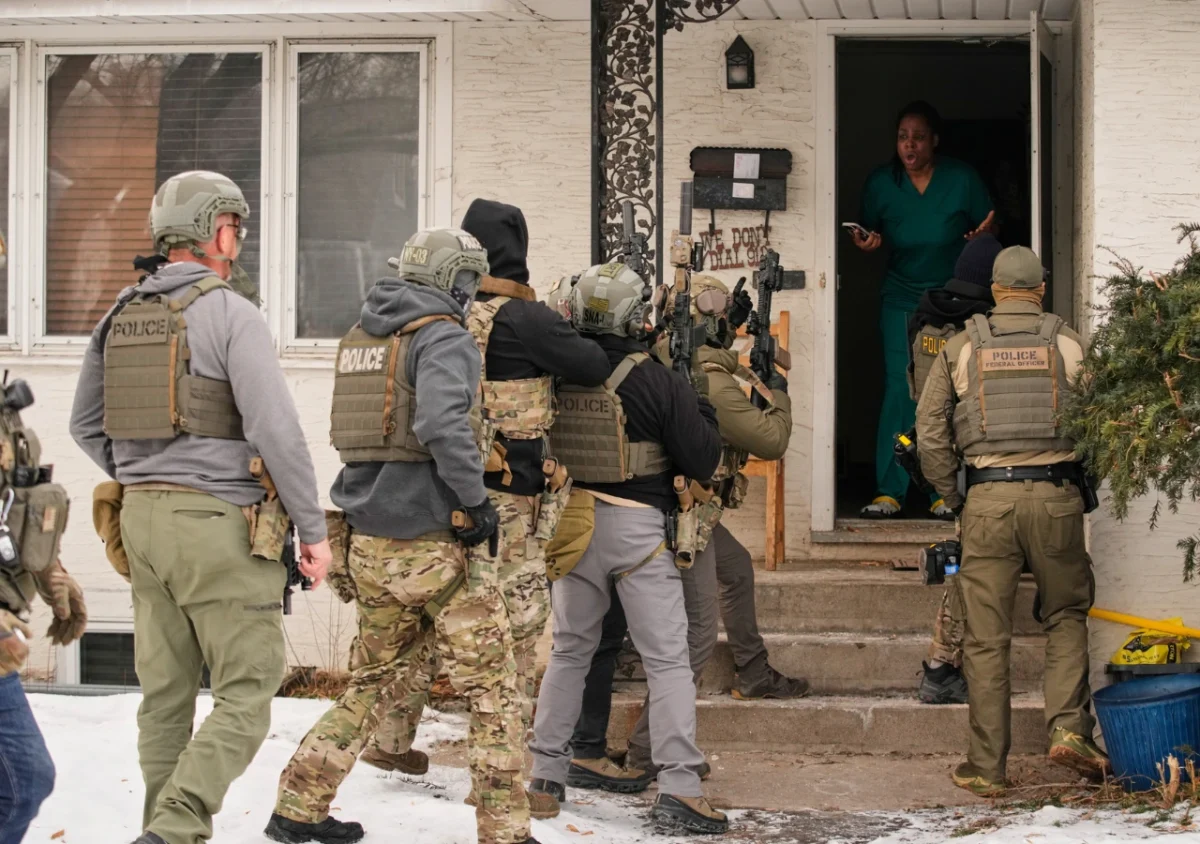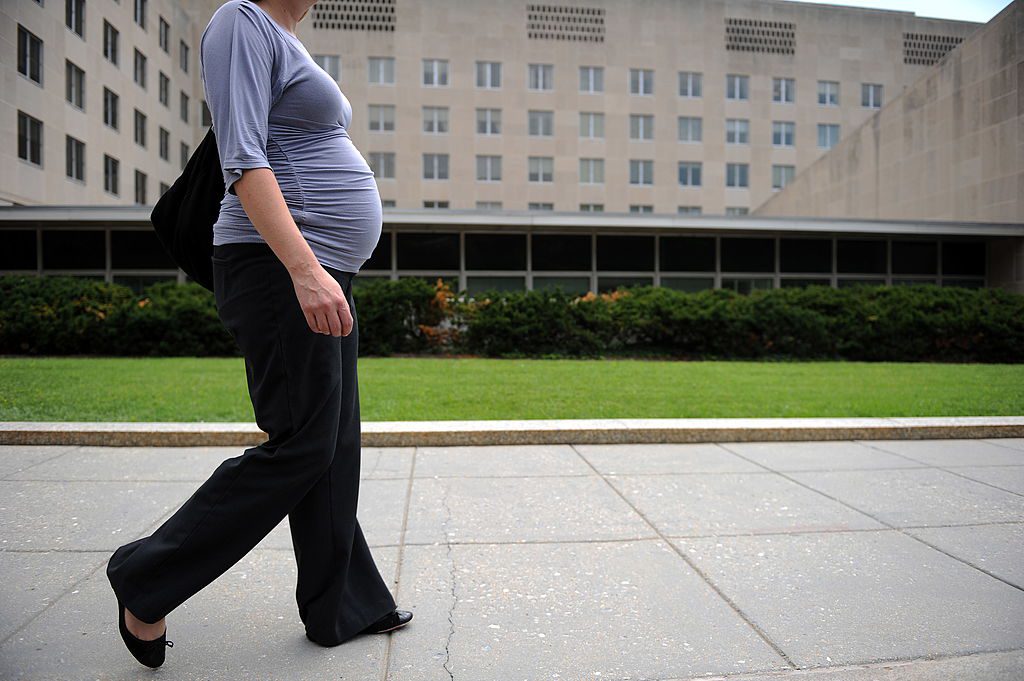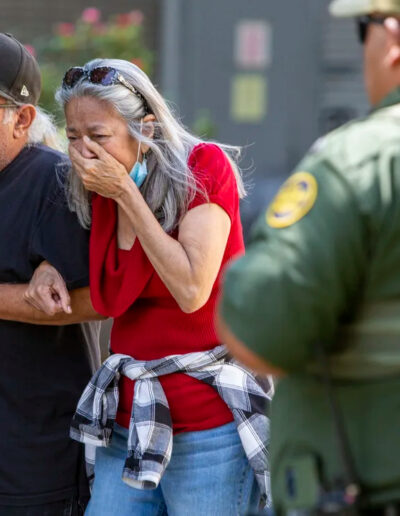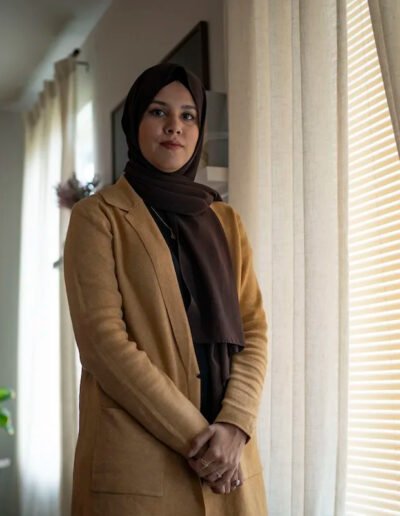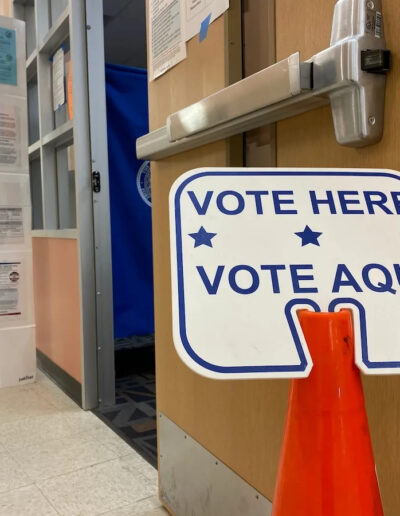
Moving to Houston as a result of Hurricane Katrina was a difficult transition for Jenny Coleman, but 20 years later she happily lives in North Texas with her family. (Photo courtesy of Jenny Coleman)
Jenny Coleman still hasn’t fully processed what happened to her 20 years ago.
The night before Hurricane Katrina made landfall in New Orleans, Coleman, who now lives in Forney, found herself going through the motions as her family packed up their car. Where they were headed was anyone’s guess.
Two decades ago this week, more than a million people fled New Orleans and the Gulf Coast to escape Katrina’s devastation—with tens of thousands ultimately resettling in Texas. Coleman and her family were among them.
Just a few weeks before the storm, Coleman turned 15. She lived in the vibrant community of the Seventh Ward and worked in her aunt’s Caribbean restaurant when she wasn’t in school.
“We normally never left,” Coleman recalls. “We had a lot of hurricanes, so we didn’t really take it seriously.”
Coleman’s family noticed many of their neighbors packing up to evacuate. She recalled the adults briefly considering waiting out the hurricane at the Superdome, but after seeing droves of people leaving town, they decided to make a run for it—possibly catching the last window of escape as Interstate 10 filled with panicked drivers.
“We didn’t really take much, maybe a few things,” she said. “We figured it might blow over in two to three days, so two to three days worth of stuff is what we took.”
Coleman winces at the memory of the car ride—her aunt, grandmother, two brothers, and a dog stuffed in one car with no air conditioning—and said she’ll never forget how miserable it was. They drove all night and all morning.
Their car arrived in Galveston just before noon—the only city they found with available hotel rooms. New Orleans was already under water. Several levees had broken, flinging 20-foot tidal surges into mom and pop neighborhoods, filling up streets at shocking speeds till there were only rooftops peaking out atop sea water—like swimmers floating on their backs.
Coleman watched the footage from her hotel room TV, and said, at first, it looked like nothing was really damaged. But phone calls were not going through to anyone still in the city. Reality became clearer as time went on.
After staying in a hotel for a week on their own dime, FEMA vouchers came in to supplement further hotel stays before relocating the family to Houston.
For two months, Coleman and her siblings weren’t in school. They spent their days walking around hotel hallways, watching TV, and going from one FEMA appointment to another, collecting snacks and supplies and any semblance of hope.
Eventually, the family got a three-bedroom apartment through a voucher, but Coleman remembers the neighborhood being really rough. When she finally started school, it was a tale of Houston kids versus New Orleans kids. Coleman was out of her element and witnessing daily culture clashes told her she wasn’t alone.
“ As at that age, I never even knew anything outside of Louisiana. So when I heard Texas, I’m like, okay, do they ride on horses?”
Coleman said Katrina survivors were just thrown into the mix at school, with no real preparation from teachers. She doesn’t remember there being any counseling services and definitely never talked to a therapist herself. She went with the flow, like she had throughout the entire ordeal.
In the rearview—almost
Coleman moved from Houston to Dallas 2017 for a job opportunity, later building a house in Forney. The trauma of Katrina has not been something she’s carried into every crevice of her life, but when she looks back at her teenage self, she realizes she was holding a lot in.
“ You don’t really know the impact until you get older and then you start to understand like, that really was a lot, that was a super traumatic experience, like you lost your home, you had to move.”
If a Katrina-level storm hit Texas today, Coleman believes it’d be handled differently, that more aid would be available faster. Hearing older family members recount Katrina days wasn’t enough for Coleman to grasp all the details; she watched documentaries to fully comprehend how severely the government failed victims.
”It’s really disappointing, because in other circumstances, I’m pretty sure they would’ve made sure that aid was provided, but I feel like because New Orleans is mainly Black people, then they felt like it wasn’t a rush.”
Coleman is now a parent of twin 12-year-olds, a 10-year-old, 7-year-old, and 5-year-old. She said the older children have asked her about her Katrina experience, but that they don’t really get it. She thinks, maybe, it’s time for them to watch a documentary.
Shortly after her family’s Houston move, Coleman’s aunt went back to New Orleans to begin clearing out and cleaning up her restaurant. It took her about seven months and lots of saved up FEMA dollars to get all the water out and the place remodeled.

Coco Hut opened in 2000. (Photos courtesy of Jenny Coleman)
Coco Hut Caribbean Restaurant was one of the first businesses to open back up after Katrina, and Coleman said the community embraced the restaurant’s return—her aunt was and still is a beloved institution in her community. Everyone calls her “mother.” It’s short for “Mother Nacha,” a nickname she had long before the other Mother Nature threatened her restaurant.
Coleman now co-owns the restaurant from her Dallas suburb, handling the business side of things and planning for the day when her aunt might want to retire. But make no mistake, Coleman says she’d never move back to New Orleans.
“I’m a Texas girl now.”
Over the years, Coleman has gotten therapy for other things, but never about Katrina. She feels like it just lives in her now. On anniversaries, she is taken back, and if only for a moment, is hit with the memory of leaving her home and never returning.
And then she keeps on pushin’.
“Our experience tried to break us,” she said, “but it didn’t.”
Support Our Cause
Thank you for taking the time to read our work. Before you go, we hope you'll consider supporting our values-driven journalism, which has always strived to make clear what's really at stake for Texans and our future.
Since day one, our goal here at COURIER Texas has always been to empower people across the state with fact-based news and information. We believe that when people are armed with knowledge about what's happening in their local, state, and federal governments—including who is working on their behalf and who is actively trying to block efforts aimed at improving the daily lives of Texas families—they will be inspired to become civically engaged.







